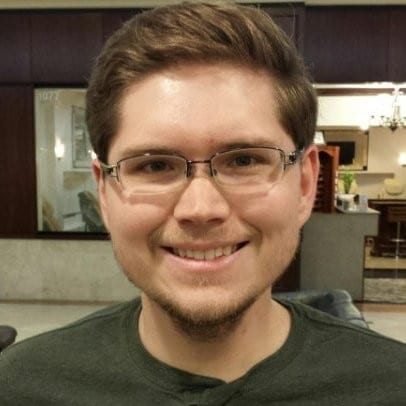If you’re a developer or technologist looking to work at a startup or small business, you might feel uncertain about what to expect in the interview process.
You need to have the technical skills to succeed, but there are also qualities that can determine whether you can succeed in a fast-paced, flexible, and growing environment.
We asked startup technical leaders and hiring managers what kind of questions they ask in the interview process.
1. The Qualities that Startups Want to See in You
Many developers love the idea of working at a startup or small business.
If you’re one of them, then you’ll want to make sure you communicate that you have what it takes to work in this environment.
Here are the top 5 things to communicate during the interview process.
- You’re flexible and willing to wear multiple hats. Give examples of times that you had to switch between roles or perform tasks outside of your job description. Startups often consist of small, but growing teams. The roles aren’t as clearly defined and sometimes you’ll have to do work that’s outside your wheelhouse.
- You can handle pressure and stress. How have you navigated stressful work experiences in the past? Are you able to work under pressure? Some days the work at a startup can be stressful, but it’s also incredibly rewarding.
- You’re teachable and have a sense of humility. Demonstrate times when you made a mistake, messed up, and had to bounce back. What did you learn from the experience? At a startup, the entire team is learning and growing. Having humility and a willingness to learn will go a long way when it comes to success in that environment.
- You can work in a fast-paced environment. Share examples of projects with tight deadlines or times you worked on live production issues. This will help you communicate that you’re able to move fast when you need to.
- You aren’t afraid to fail. Do you have any examples of times that you failed? What did you learn from the experience? Failure is a natural part of working in the startup space. Startups will want to know that you’re creative and willing to try new things, even if failure is a possibility.
There are certainly more necessary traits to make a successful developer, but these are the top ones that startup hiring managers shared with us.
2. How Startups Determine Whether You’re a Good Fit
So how do startups determine whether you have those qualities?
During our conversations with technical hiring managers, we asked: How do you determine whether this candidate is a good fit for the startup space?
Here’s what they had to say:
 “I typically don’t ask any direct questions around this area, but rather listen when they’re talking about past roles and experiences. If they have been involved in startups or other ventures I ask… about how they felt about the chaos of joining a startup. Oftentimes, people that grew up in large companies present their resume differently. They focus on tasks, efficiency, times they sacrificed for the company or their boss, or their interactions with a corporate ladder. Folks that have more of a startup mindset usually focus on problems they have solved, how their responsibilities have changed or evolved (as opposed to getting promoted), ask a lot of questions about things not in their direct job description, and get excited about the space and where it can go.” – Jeremy Freeman (CTO, Allstacks)
“I typically don’t ask any direct questions around this area, but rather listen when they’re talking about past roles and experiences. If they have been involved in startups or other ventures I ask… about how they felt about the chaos of joining a startup. Oftentimes, people that grew up in large companies present their resume differently. They focus on tasks, efficiency, times they sacrificed for the company or their boss, or their interactions with a corporate ladder. Folks that have more of a startup mindset usually focus on problems they have solved, how their responsibilities have changed or evolved (as opposed to getting promoted), ask a lot of questions about things not in their direct job description, and get excited about the space and where it can go.” – Jeremy Freeman (CTO, Allstacks)
 “The one question I always ask is whether or not they have worked for a startup or a remote company… This is important, given that our company is 100% remote and folks who haven’t had this sort of remote experience, especially at a startup, tend to feel more isolated in the beginning.” – Greg Mundy (VP Engineering, BrightHive)
“The one question I always ask is whether or not they have worked for a startup or a remote company… This is important, given that our company is 100% remote and folks who haven’t had this sort of remote experience, especially at a startup, tend to feel more isolated in the beginning.” – Greg Mundy (VP Engineering, BrightHive)
 “We don’t do those ‘gotcha’ brain teaser questions that some big companies do or run you through a lot of tests that basically determine how well you take tests… We may ask a candidate to walk us through a recent project they completed and have a conversation about what went well and what didn’t. This helps us understand how the candidate thinks, how they work in groups, whether or not they have a sense of humility, and how they respond to success or failure (or both)… We’re looking for fully-formed adults (of all ages), who can step into ambiguity and make things happen” – Doug Lawson (VP of Engineering, Yay Lunch)
“We don’t do those ‘gotcha’ brain teaser questions that some big companies do or run you through a lot of tests that basically determine how well you take tests… We may ask a candidate to walk us through a recent project they completed and have a conversation about what went well and what didn’t. This helps us understand how the candidate thinks, how they work in groups, whether or not they have a sense of humility, and how they respond to success or failure (or both)… We’re looking for fully-formed adults (of all ages), who can step into ambiguity and make things happen” – Doug Lawson (VP of Engineering, Yay Lunch)
 “I ask for examples of times they made a bad technical decision, and why they made it. While we take the work we do seriously, we care deeply about our mission and if we get this right it is going to matter, we don’t take ourselves too seriously. We’re willing to be wrong and learn from ourselves. It requires a pretty serious level of humility. We’re constantly in a position where we could be doing better and we could be improving. We’re looking for someone who can grapple with that and realize there’s a gap between where we are and where we want to be.” – Leo Hentschker (CTO, Column)
“I ask for examples of times they made a bad technical decision, and why they made it. While we take the work we do seriously, we care deeply about our mission and if we get this right it is going to matter, we don’t take ourselves too seriously. We’re willing to be wrong and learn from ourselves. It requires a pretty serious level of humility. We’re constantly in a position where we could be doing better and we could be improving. We’re looking for someone who can grapple with that and realize there’s a gap between where we are and where we want to be.” – Leo Hentschker (CTO, Column)
 “I ask point blank – ‘What do you think it’s going to be like to work at this startup, and how does that compare to your current role?’ I’m looking for someone who knows they’ll have to wear multiple hats (and wants to!).” – Rajesh Nerlikar (Chief Product Advisor, Prodify)
“I ask point blank – ‘What do you think it’s going to be like to work at this startup, and how does that compare to your current role?’ I’m looking for someone who knows they’ll have to wear multiple hats (and wants to!).” – Rajesh Nerlikar (Chief Product Advisor, Prodify)
 “I have candidates describe past projects they worked on and then ask follow-up questions to determine if they are the type of engineer who will thrive here: Are they open-minded, self-aware, pragmatic, and curious? Do they possess sound judgment and exceptional critical-thinking skills? Can they work collaboratively and independently? Are they positive and upbeat about previous experiences and not overly negative?” – Michael Gruen (VP Engineering, Cybrary)
“I have candidates describe past projects they worked on and then ask follow-up questions to determine if they are the type of engineer who will thrive here: Are they open-minded, self-aware, pragmatic, and curious? Do they possess sound judgment and exceptional critical-thinking skills? Can they work collaboratively and independently? Are they positive and upbeat about previous experiences and not overly negative?” – Michael Gruen (VP Engineering, Cybrary)
3. The Top Interview Questions That Startups Ask
We asked these startup leaders and hiring managers what questions they ask during the interview process. Below we share some of the more common questions that they bring up.
To determine personality and work philosophy:
- Can you describe this role in your own words? What excites you about the position? Why do you think you’d be a good fit?
- Where do you find your drive/what makes you “tick”?
- What’s a project you’re proud of? (Is it building a treehouse for your kid? Running a marathon? Something work-related? A failed cupcake shop?)
- Describe your ideal manager
- Describe your ideal team (size, mix of collaboration vs independence, etc).
- Describe how you would solve a problem you haven’t seen but that’s related to things you’ve done?
- When stumped, what do you typically do? Where do you turn for help?
- Are there any circumstances under which you feel that asking a co-worker for help is or is not appropriate?
- What is your philosophy on software testing?
To learn about past experience:
- Tell me about a time when you were working on a team but the team wasn’t doing well – what was going on, and how did you handle it?
- Tell me about a time when you had a difficult client or customer–how did you handle them, and what did you learn from that experience?
- Tell me about a project you’ve worked on. What was your role like, what did you learn, what was your reasoning behind the key decisions you made, what feedback did you get and how did you handle any criticism?
- Tell me about a time when a task or project you were working on fell behind and it became clear that you would not get it done on time. What steps did you take and when? How did it work out?
To discover career goals:
- What are you looking for in a role?
- Where do you want to head in your career?
- How do you want to grow professionally?
Bonus Tip: These are the most common questions we’ve come across when talking with startup hiring managers about their interview process. But it doesn’t end there. To prepare for your interview, take into consideration what questions you should ask to make sure it’s the right startup for you.
Searching for a new Job? Send us your resume.





